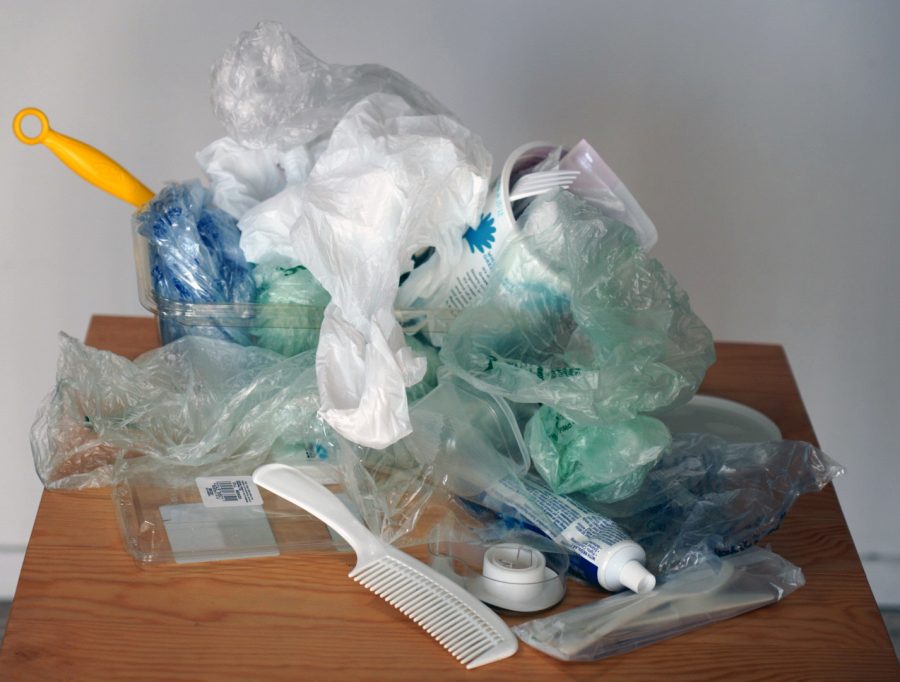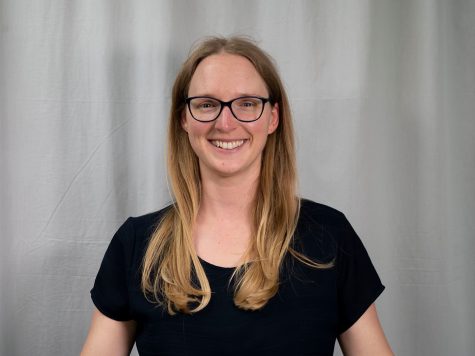A panel of zero waste experts discussed personal actions that can affect plastic pollution and climate change while offering hope for the future with 50 Santa Rosa Junior College students and community members Feb. 25 during a Zoom event.
The panel followed a Sierra Club screening of “The Story of Plastic,” which traces the evolution of plastic from the miracle convenience product of the 1950s to the ocean-clogging, carbon-emitting calamity of today.
Made from fossil fuels, plastics pose a dual threat to society: huge volumes of solid waste and climate-altering greenhouse gases.
Panelists did not shy away from the magnitude of these issues.
“Nature doesn’t give a hoot if human beings are here or not. ‘Saving the planet’ is really about saving our environment, making it safe for ourselves, our children and the world as we know it,” Todd Sutton, owner of Waste Sleuth & Associates, said.
The zero waste experts discussed local and regional efforts to reduce plastic waste, and by extension greenhouse gases.
Celia Furber, Zero Waste Manager with Recology Sonoma Marin, broke the problem down into the familiar “reduce, reuse, and recycle” with an additional “r” for “rot” and a few updates for pandemic life.
She encourages voting with our dollars by refusing to buy products packaged in single-use plastics and reusing materials when possible to reduce demand.
If you’re ordering take-out, Furber suggests asking the restaurant to not include disposable utensils when they bag your meal.
The pandemic has interrupted people’s habit of bringing reusable bags to grocery stores, but Furber pointed out that many stores now have outside bagging stations that permit reusable bags.
As indicated by “The Story of Plastic,” reducing plastic consumption is critical because, of the 14% of plastics recycled, only 2% are recycled into useful materials. Furber also encouraged people to recycle correctly rather than “wish-cycling” something that may not actually belong in the recycling bin. Materials that cannot be handled by local recycling facilities contaminate viable recyclables and end up in the landfill.
“You can’t ever really trust what the manufacturer is telling you on a product. Just because they say it’s recyclable or compostable, doesn’t necessarily mean it’s true. They’re not really regulated. They can say whatever they want on their packaging,” Furber said. She recommended checking with local facilities to find out how best to dispose of an item.
In Sonoma County, plastic bags, plastic utensils, and styrofoam cannot be recycled. Plastic bottles, plastic clamshells and milk cartons are recyclable. Check Recology Sonoma Marin for more recycling and composting guidelines.
For compostable plastics, which look exactly like regular plastics when sorted at composting facilities, project manager at Renewable Sonoma Will Bakx suggested staying away from these materials until they are better regulated and standardized. Loads contaminated with what looks like plastic are sent to the landfill to avoid contaminating the valuable compost end-product.
Panelists encouraged people to compost food waste or put it in the green bin. Bakx said that Sonoma County hopes to build a new composting facility in 2023 or 2024 to handle more green waste.
Another major theme of “The Story of Plastic” is the need to hold companies accountable for the lifecycle of their packaging. If companies continue to make millions of tons of plastic every year, personal choices at the supermarket and community beach clean-ups can only go so far.
The film likened this problem to trying to empty a bathtub with a teaspoon while the faucet is still on.
To help turn off the plastic tap in California, Furber mentioned groups like the Sierra Club and Recology have collected over 800,000 signatures to put the Plastics Free California Initiative on the ballot in 2022. According to the Plastics Free California website, the initiative will reduce plastic pollution in part by, “ensuring that all single-use plastic packaging be reusable, recyclable, or compostable by 2030.”
“Please don’t get too discouraged. There’s a lot of progress that’s being made locally, California statewide and maybe at the federal level now, too,” Furber said. “If you learned anything new today, just share it. That’s how we’re going to see this cultural shift over time.”




